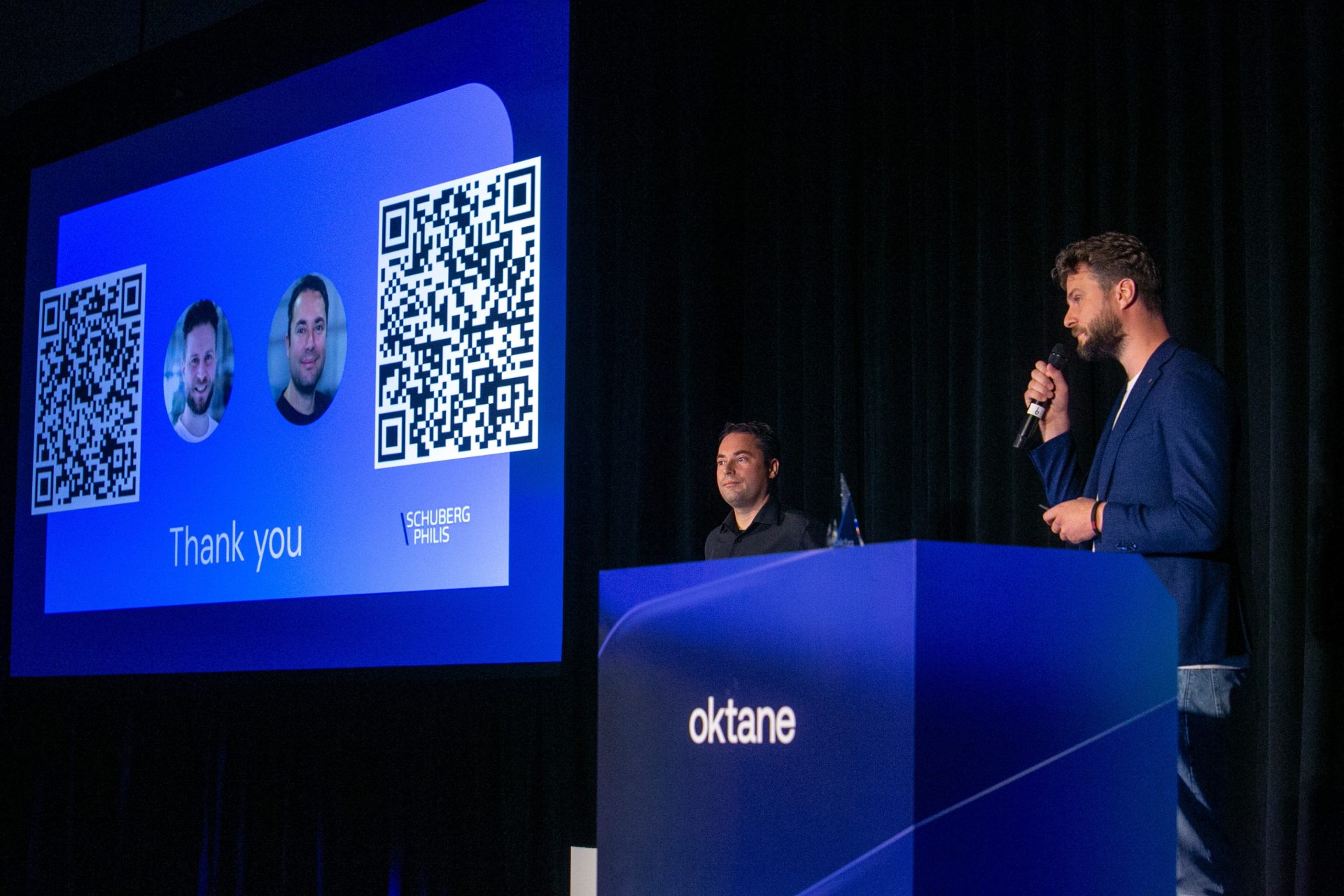Compliance through flexibility and innovation
With Workflows, Schuberg Philis was able to seize upon the opportunity to simplify their tech stack, giving their engineers time to focus their efforts elsewhere. But it also allowed them to tackle the challenges of necessity head-on.
Just look at their integrations. Schuberg Philis has roughly 20 connectors, with many for apps you’re undoubtedly familiar with — Slack, Jira, and so on. And yet, Workflows isn’t using pre-built connectors for these, as van Wegberg explains, but rather using custom ones that allow it to operate within the highly regulated environments it serves.
“One example that highlights the flexibility of Okta Workflows is our Slack connector. We couldn’t use the pre-built one, as it required far more permissions than what we needed to simply post a message to a channel. So, we built our own that uses webhooks, and it only took a couple of hours to build,” van Wegberg says.
Similarly, Workflows gave Schuberg Philis the ability to establish reliable, auditable, and visible logging for each custom integration.
“External logging and alerting is a requirement in our environment. Every connector in our environment sends data to Splunk and OpsGenie,” said van Wegberg. While the company could create a simple workflow that automatically routes logs to Splunk, that would have the undesirable side effect of turning their Okta environment into a “black box” with no visibility for colleagues and auditors.
Instead, it created a template that other custom integrations build upon, where logging and error handling are established by default. This approach provides consistency across all workflows and has evolved into a governance model for all Identity automation within Schuberg Philis.
Flexibility drives cost savings
Workflows has helped Schuberg Philis remain agile and innovative, despite working in some of the most complex and highly regulated sectors of the economy. It has helped reduce the maintenance costs associated with Identity-centric development tasks, freed developer time, and allowed the company to gain proactive insights into every facet of their technology infrastructure.
This, inevitably, translates into cost savings. Schuberg Philis estimates that Workflows has saved €337,619 and 6,502 hours of engineering time, simply by allowing them to automate manual processes. A further €23,365 came from using Workflows to automate the time-consuming task of invoicing, quoting, and accounting.
“To make sure we keep these benefits with the growing numbers of Workflows and connectors,” Berende says, “our focus for the future is keeping our Okta Workflows environment maintainable with a small team of functional experts.”
Okta Workflows makes it easy to automate Identity processes at scale — without writing code. For more information on how Workflows can help you navigate challenges of lifecycle management, application provisioning, and account management, check out the following resources:
Video: Getting Started With Okta Workflows - Building Your First Flow
Guide: Getting Started with Okta Workflows
Product Page: Okta Workflows
Source: Schuberg Philis saves over 6,000 engineering hours with Workflows | Okta




